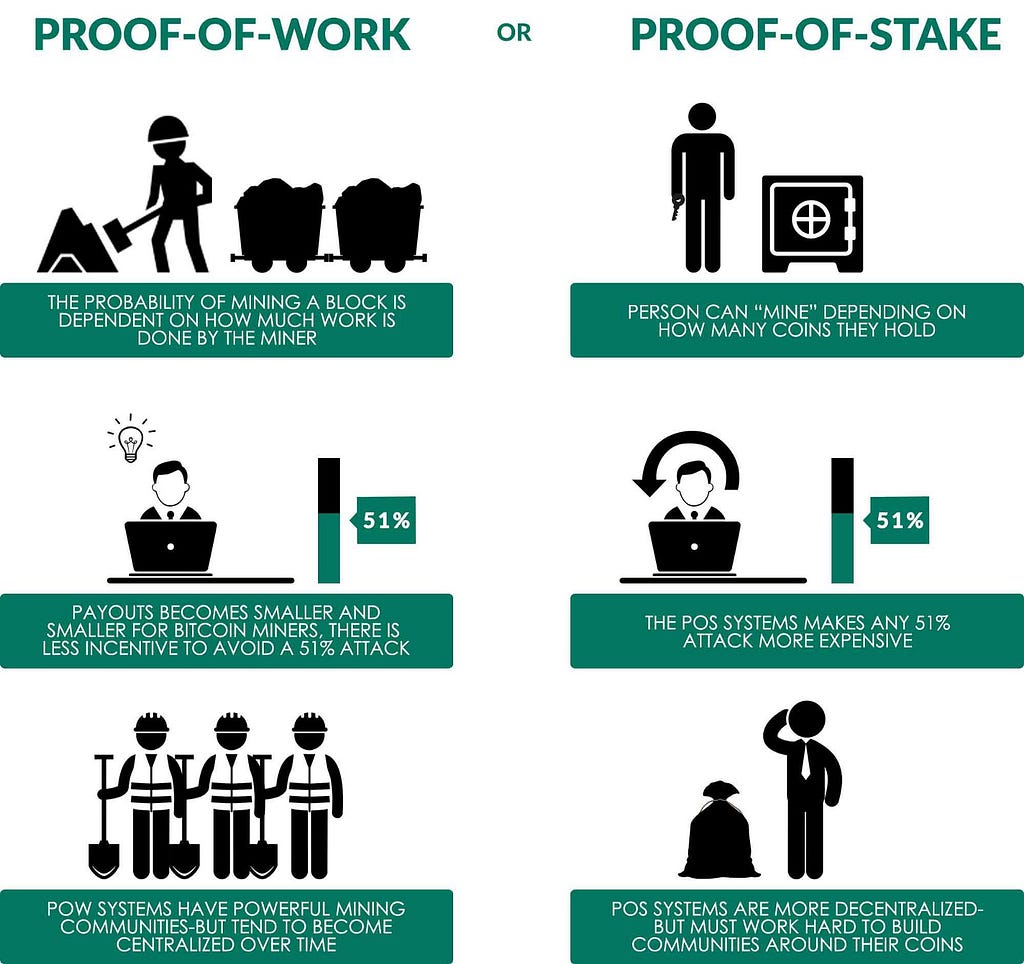Latest news about Bitcoin and all cryptocurrencies. Your daily crypto news habit.
The most popular networks — like Bitcoin or Ethereum — use Proof of Work (PoW) as such rule. Miners (validation nodes) provide operability of the whole blockchain network, and for this type of work, which is basically computing, they are ‘rewarded’ with a certain portion of an appropriate crypto. And the more miners there are within the PoW-based network the more complex computing has to be performed. Thus, eventually the network gets to the point, when it takes fairly long time to perform a computing operation.
In reality, transaction within PoW blockchain can be peresented as following: after being deployed into the network, only one ‘miner’ from the massive pool of ‘miners’ gets to hash a block, which — as we already know —is going to take quite some time or even more.
What’s different in the OTN case? Compared to the abovementioned ‘veteran’ blockchains, OTN is going to use another kind of consensus algorithm — Delegated Proof of Stake (DPoS). And if PoW is a mathematically based algorithm, DPoS in its turn is a socio-economic one with features like:
- Blocks can only be signed by a limited number of nodes. This is a step towards centralization, but due to it, we get a very high performance speed. It is much easier to coordinate operation of 21 nodes than to coordinate operation of tens of thousands of nodes;
- Signing nodes are selected by the means of voting. One node by any stretch cannot do much harm to all blockchain, but its harmful work will surely be noticed, therefore users will change their preferences in favour of another new orderly node;
- Mining is non-existent in the network. This means that all funds (tokens/coins) have already been deployed in the network, and the nodes signing the blocks do not receive any award out of thin air, as one might say. Their reward consists only of the portion of a fee for transactions included into a block. But in order to earn this way— the node needs to get the voices of the users;
- All the holders of the OTN base currency have a right to vote. But most likely, greater part of the user base will be too lazy to do this. That’s why the algorithm has a minor specification in its naming — Delegated. You can entrust your vote to someone who has a more active stand within the network, and he will vote for you. If you do not agree with how your trusted representative votes, you can at any time revoke this designation and reassign it;
- The more money a participant obtains, the stronger his or her vote will be. Or rather, if some entity within the network is gaining a large number of votes, then it qualifies as a part of a ‘governance system’ of the network. This ‘overnance system can change the rules of the network, assigns operational fees. If the member of the ‘governance system’ starts to perform poorly, then most likely he or she will lose the votes and the seat at the top.
Thus, if the rule “the more powerful — the more rightful” holds for the PoW algorithm, then for the OTN Foundation works a more vivid “the richer — the more rightful”. It is possible to hack a PoW-based network, having 51% of the capacity of the entire network, which is very expensive. In our case (DPoS) — it is necessary to possess 51% of all funds deployed within the network. Which could be even more expensive. And why sabotage a network, which offers a great amount of funds to posses?
 Proof of Work vs Proof of Stake Ecosystems
Proof of Work vs Proof of Stake Ecosystems
Almost forgot the most important thing. Thanks to DPoS, our blockchain is incredibly fast, and transactions are very cheap. Each transaction undergoes a signing procedure within 3 seconds. The data throughput of OTN is comparable with Visa and Mastercard as of right now!
In addition to a bunch of boring general information about the consensus algorithm, an attentive reader might have noticed the first way to earn money in our network 😉
Warning: Investing involves a high degree of risk. All tokens are provided by the OTN foundation and the activity is non-commercial.
Basics of the OTN Blockchain: consensus algorithm was originally published in Hacker Noon on Medium, where people are continuing the conversation by highlighting and responding to this story.
Disclaimer
The views and opinions expressed in this article are solely those of the authors and do not reflect the views of Bitcoin Insider. Every investment and trading move involves risk - this is especially true for cryptocurrencies given their volatility. We strongly advise our readers to conduct their own research when making a decision.
